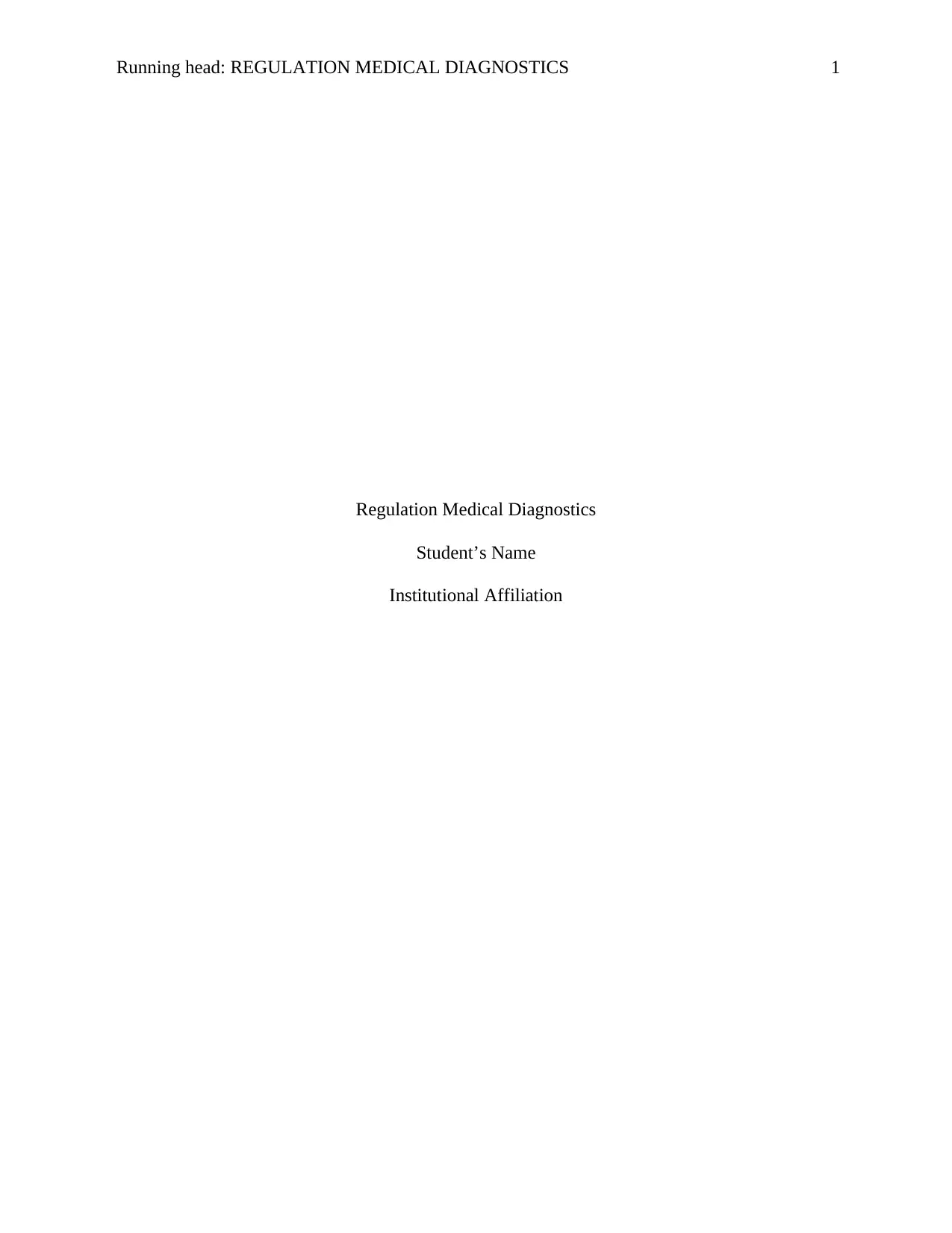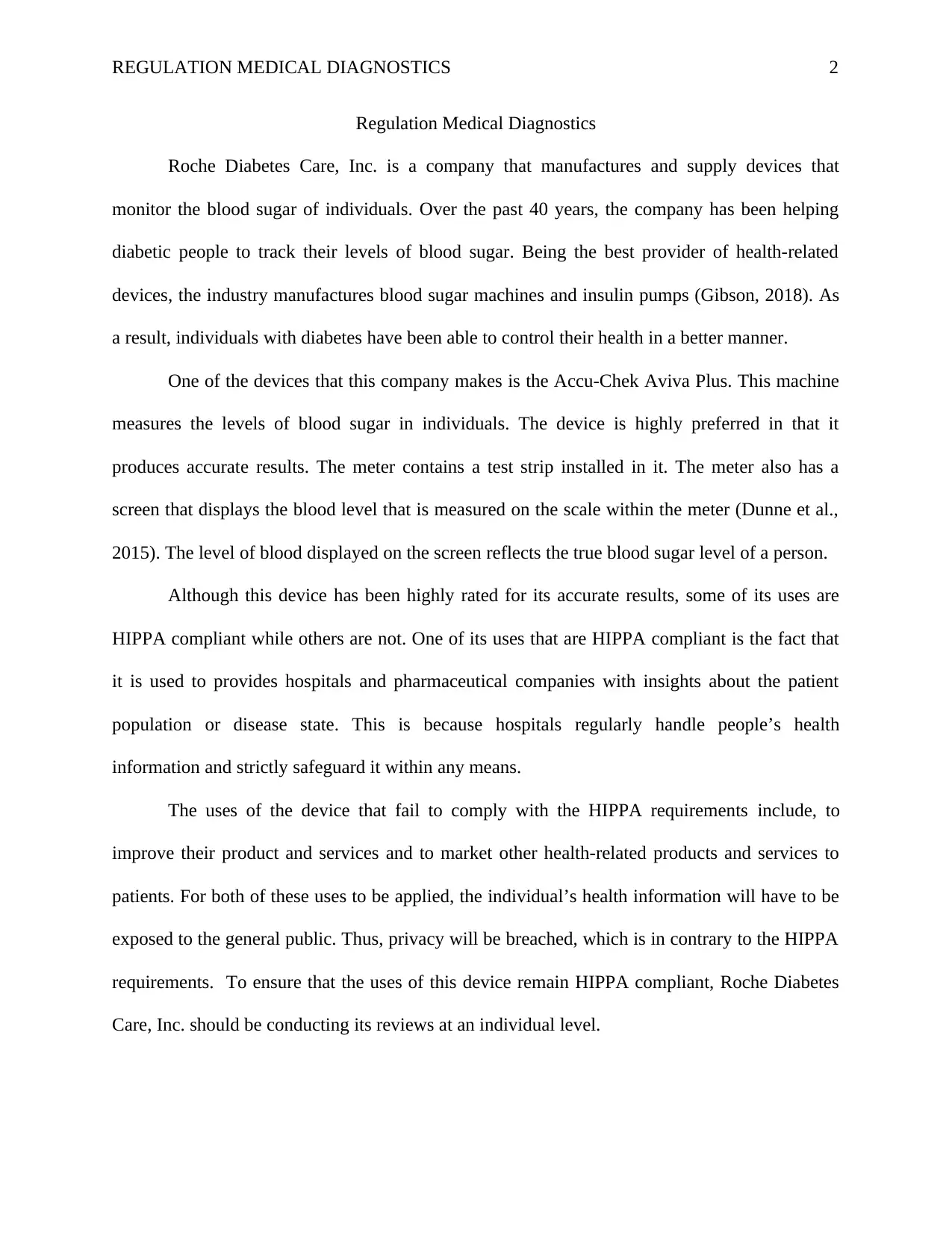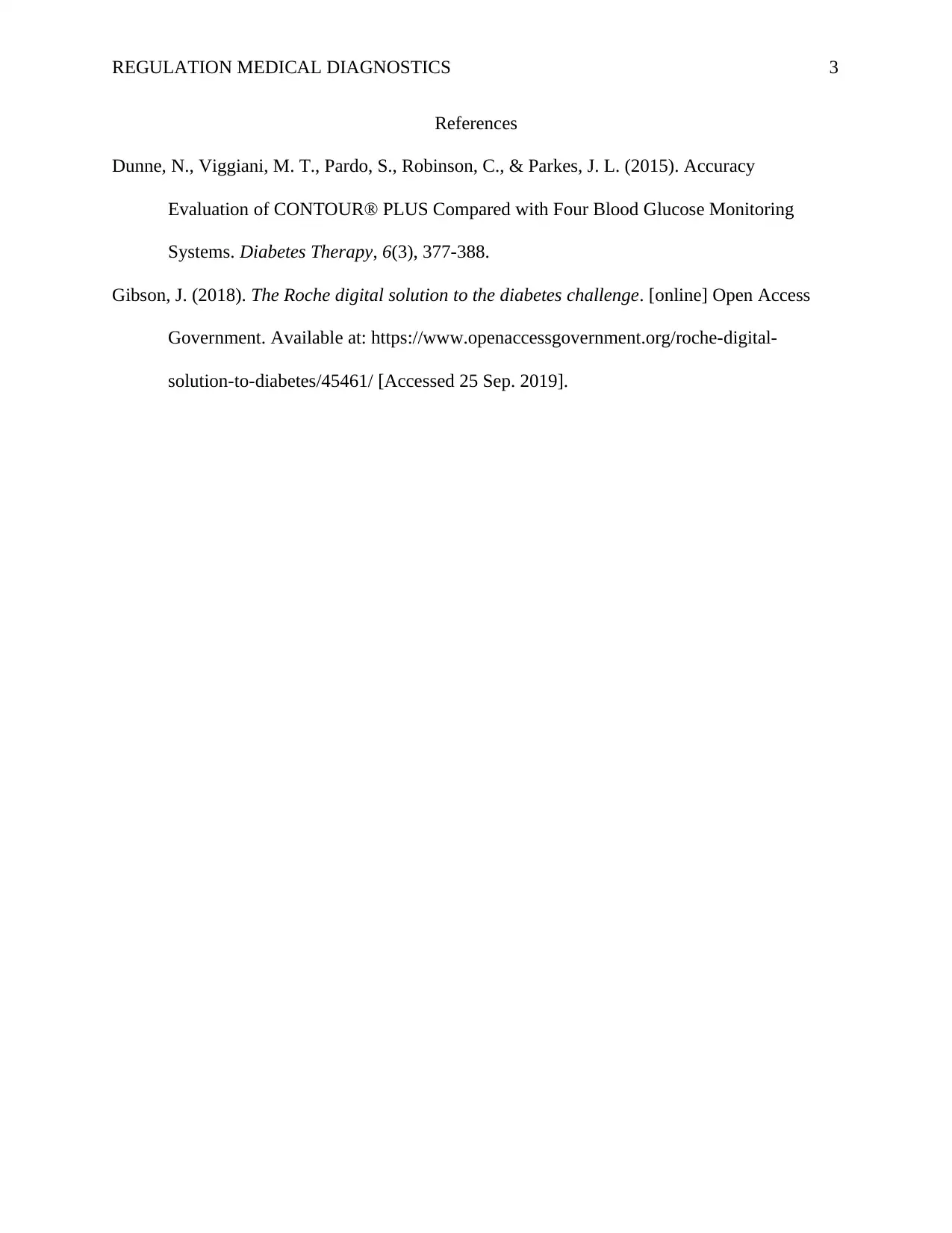Roche Diabetes Care and HIPAA Compliance in Medical Device Data
VerifiedAdded on 2022/10/12
|3
|461
|89
Report
AI Summary
This report examines the data privacy practices of Roche Diabetes Care, specifically focusing on their Accu-Chek Aviva Plus blood sugar monitoring device. The report identifies the types of personal health information collected by the device and analyzes which uses of this data are compliant with the Health Insurance Portability and Accountability Act (HIPAA). The compliant use cases include providing hospitals and pharmaceutical companies with insights into patient populations, while the non-compliant uses involve using data to improve products and services or to market other health-related products directly to patients. The report emphasizes that for Roche Diabetes Care to remain HIPAA compliant, it should conduct its reviews at an individual level, ensuring patient privacy is protected. The analysis is supported by references to relevant literature, and it provides a clear understanding of the implications of HIPAA regulations in the context of medical device data collection and usage.
1 out of 3






![[object Object]](/_next/static/media/star-bottom.7253800d.svg)